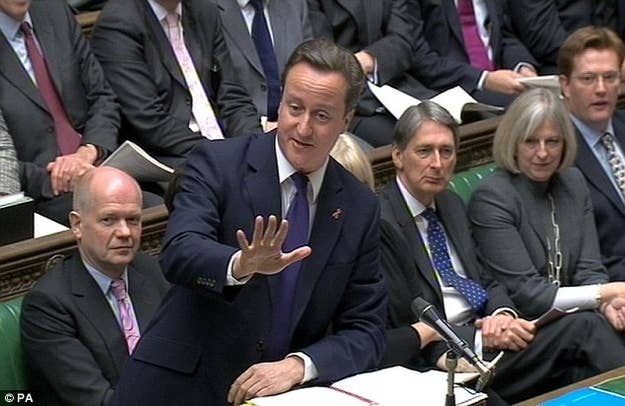
At 10.31pm last night, British MPs voted to reject possible military action against the Assad government in Syria to deter the use of chemical weapons.
Prior to this, a Labour amendment calling for "compelling" evidence was rejected by MPs by 114 votes.
But - in an unexpected turn of events - MPs also rejected the government's motion in support of military action in Syria if it was supported by evidence from United Nations weapons inspectors that Bashar al-Assad had used chemical weapons.
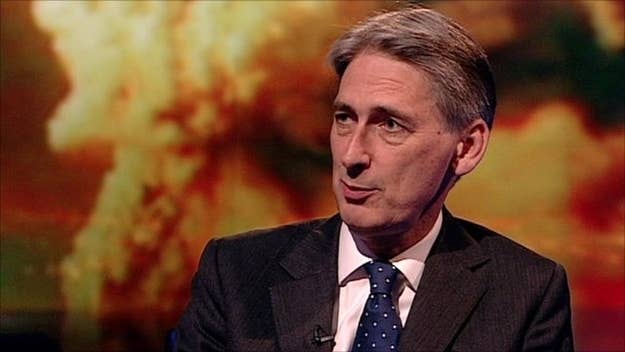
Defence Secretary Philip Hammond confirmed on Newsnight that Britain would not be involved in any military action against the Assad regime. He said: "I expect that the US and other countries will continue to look at responses to the chemical attack. They will be disappointed that Britain will not be involved. I don't expect that the lack of British participation will stop any action."
To shouts of "resign" from the Labour benches, David Cameron told MPs: "I strongly believe in the need for a tough response to the use of chemical weapons. But I also believe in respecting the will of this House of Commons. It is clear to me that the British Parliament, reflecting the views of the British people, does not want to see British military action. I get that and the Government will act accordingly."
The US has been able to rely on British support ever since the Suez crisis of 1956. Indeed, Britain has followed it into almost every major conflict of the Twentieth and Twenty-First Century. Now it won't. As Hammond also said, this will place some "strain" on the special relationship. That's putting it mildly. Britain will not be consulted on US plans. We were best buds, and on this issue they won't even return their calls.
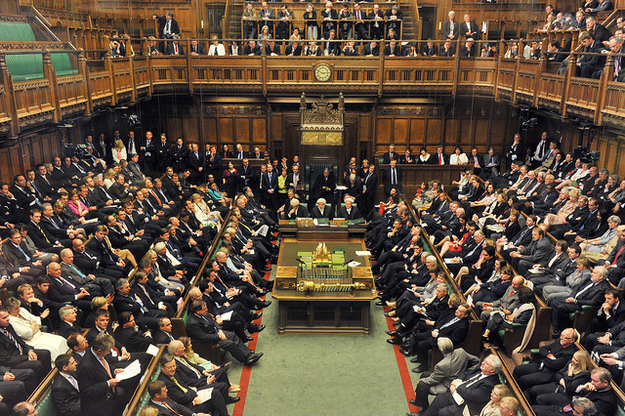
The legislature is suddenly becoming as powerful - perhaps more so - than the executive. The tradition has been for Parliament to back the Government's decisions and to act more as a watchdog than a policy maker. By the time Tony Blair consolidated power, backbench MPs were about as involved in foreign policy decisions as he was over the planning permission for Number 42's gazebo, and often less informed.
Even at the start of this week, it was said Cameron could do what he wants in Syria regardless of the parliamentary vote. Now a war in Syria will be political suicide. He's already tried once, but only managed to shoot himself in the foot. Moreover, it'll now be very hard – impossible even – for a government to go ahead with a military engagement without first consulting parliament. Our constitution is informal. What this means is that parliament has essentially got itself a veto.
What's changed? In large part, this is due to a combination of factors - the actions of the parliamentary leaders and above all the fact we have a hung parliament. But consider also the legacy of Robin Cook during the build up to the Iraq War. It could be inscribed on his grave stone. Oh. It is inscribed on his grave stone.
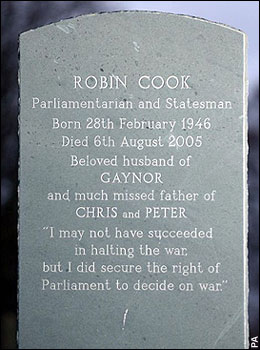
Parliament expressed the will of the people (the last YouGov poll showed opposition to military strikes running at two to one).
At the same time we saw tribal tendencies at their worst. Shortly before the vote took place, the BBC showed an utterly harrowing report from Ian Pannell in Syria which depicted the aftermath of a school that had been bombed.
This is an issue of conscience. It's about doing something for the innocents depicted on that film, not about petty point scoring. So our parliamentarians should have respected each other's decisions.
Gove loses it in the lobby! Accusing colleagues of supporting Assad in a very high pitched voice.

Barry Gardiner MP
@BarryGardiner
Gove loses it in the lobby! Accusing colleagues of supporting Assad in a very high pitched voice.
/ ViaIt wasn't some kind of point-scoring game.
Haha MT @DavidWooding: Gove so angry over #Syria vote revolt he had to be persuaded to calm down by colleagues in Commons,said Mr Robertson

tom_watson
@tom_watson
Haha MT @DavidWooding: Gove so angry over #Syria vote revolt he had to be persuaded to calm down by colleagues in Commons,said Mr Robertson
/ ViaHowever: distasteful it may be, but it'd be naive to completely ignore the political implications of a historical night. Ed Miliband emerges from the vote with his reputation boosted, but his detractors will say he simply watched his opponent commit hara-kiri in front of him. He has somehow emerged the victor of a night when parliament abandoned the idea of going to war, despite never having ruled it out himself.
His speech earlier in the day was somewhat disastrous - a stumbling, stuttering horrorshow that barely took issue with any of the arguments put forward by Cameron. He sounded like a Sixth Form debater who'd lost his cue cards. But you have to look at the bigger picture. To some (especially Downing Street staff), his late withdrawal of support for Cameron's motion smacked of politicking of the most cynical kind. But to others, it was a necessary show of prudence in the face of a Prime Minister rushing under American pressure. It was the first time since 1956 that the opposition had gone against the Prime Minister on a military matter. Still think he's a weak leader?
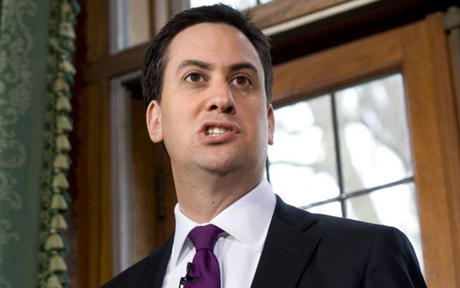
And indeed, on the Government's side the whole operation smacks of chaos. At the time of writing it appears two ministers didn't even manage to show up to the vote. Meetings without coffee this morning.
In retrospect, it's hardly surprising the motion was defeated. In fact it's rather surprising Cameron tried to get it through in the first place. He had neither public nor overwhelming party support, he knew the ghost of Iraq was hanging heavy in the air, and yet everything he did was redolent of that farrago - with summaries of intelligence dossiers and Attorney General legal advice being given precedence over the word of UN weapons inspectors.
By the time a shell-shocked Philip Hammond was Newsnight and repeatedly calling Bashar al-Assad "Saddam Hussein" it couldn't have looked more 2003 if Crazy in Love was playing the background and England were about to win the Rugby World Cup. Perhaps only now, 10 years on, are we seeing exactly how poisonous everything about that war really was.
And if you're wondering why the whips didn't do their job for the Prime Minister, the Spectator already has the detail. It claims that the operation was low-key until the middle of the day, when the whips really began to panic:
Why did so few obey the whips' polite requests for support? Well, there's principle, but that could have been expressed at the second vote, if it came. One rebel says:'It all comes down to loyalty. Who do you want to be loyal to, your Prime Minister or your constituents? The point is that backbenchers know that Cameron doesn't really mean it, that he wouldn't die in a ditch for them, so why should they die in a ditch for him?'
There were 30 Labour MPs absent. Cameron was sunk by his own MPs.
And for what it's worth, Labour's amendment was earlier rejected by 332 votes to 220: the irony is that had Cameron swallowed his pride and supported it (or incorporated Miliband's demands into the motion), the possibility of military action would have been kept open. For all the talk about how this was an issue of conscience, there's no doubt this is a hammer blow for his reputation in the party.
But then of course, there's another irony: If this had been a vote authorising military action rather than the principle of military action it could've been the end of David Cameron as Prime Minister. He may not be thanking him, but Miliband – by stalling the authorising vote – has saved him.

But that's politics. Perhaps we should talk common sense instead. What does all this mean for the people of Syria?
The permanent members of the UN Security Council met for an hour this evening. The UK has tabled a draft resolution seeking approval for military action. But Moscow and China have vetoed all previous attempts to secure resolutions critical of the regime and imposing sanctions. And here's an intriguing question: what happens if the US brings a resolution to the table? Will we end up voting with Moscow and China?
If it goes to war, America may have France – maybe even Turkey and Italy and Germany – by its side. But one other story broke tonight somewhat under the radar: General Martin Dempsey, the chairman of the joint chiefs of staff and former top army officer, has highlighted the risks of US involvement in Syria's bloody civil war for over two years. No doubt these voices will continue to grow in volume. Will Obama ignore them?
We can, of course, still intervene in Syria through humanitarian aid, by taking refugees, and offering diplomacy. Meanwhile, the innocents of Syria continue to suffer. Those who said that this vote was for the best must now make good on their promise. Those who disagreed with them must support them. This battle has only just begun.

